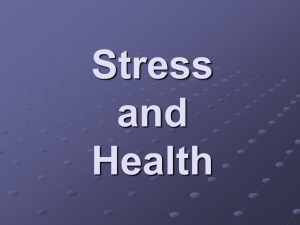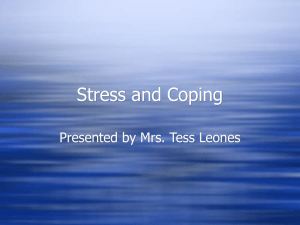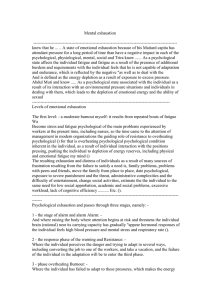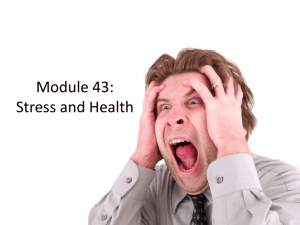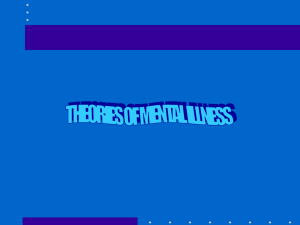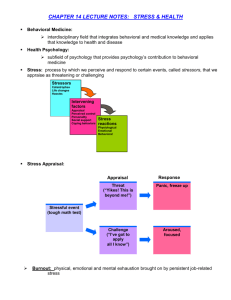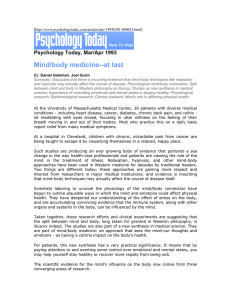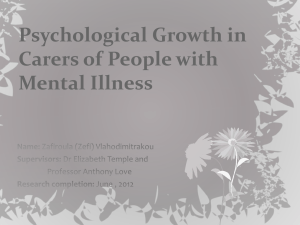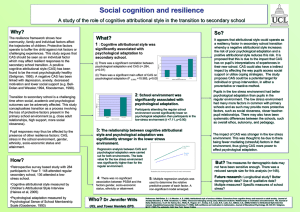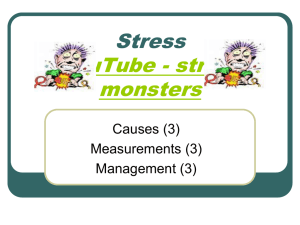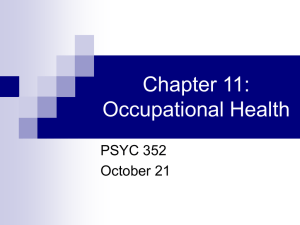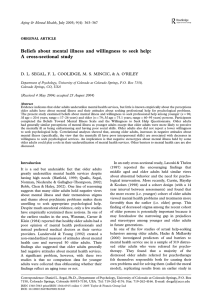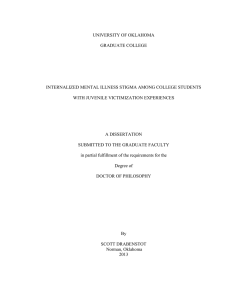Sp 13 Ch 10 quiz
advertisement
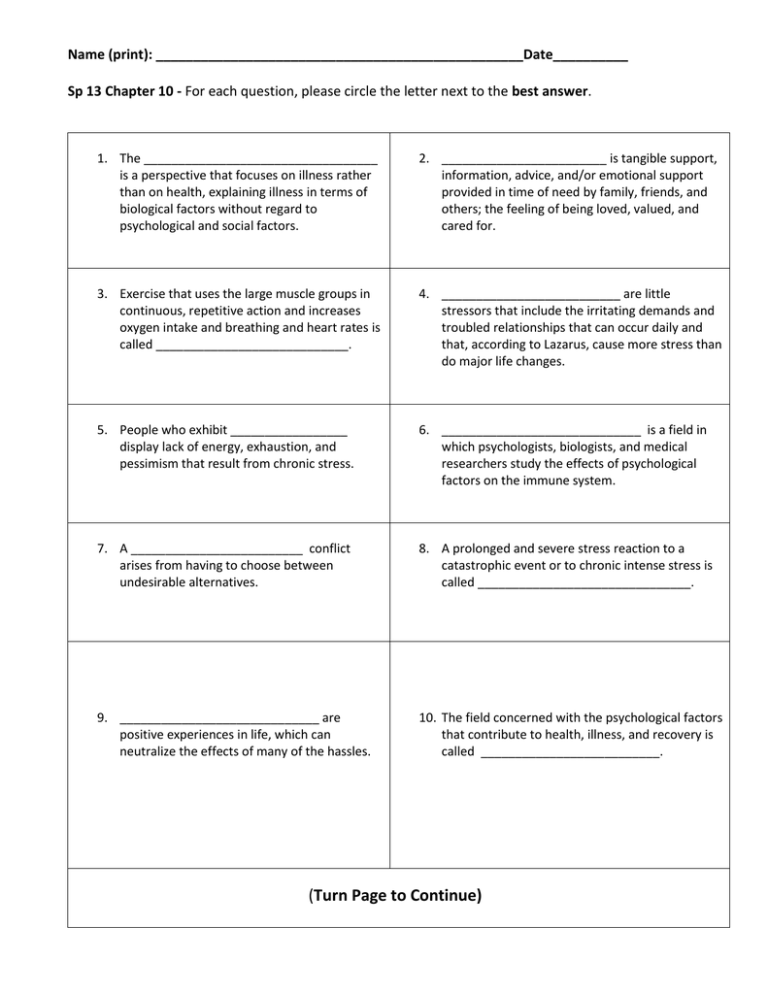
Name (print): _________________________________________________Date__________ Sp 13 Chapter 10 - For each question, please circle the letter next to the best answer. 1. The __________________________________ is a perspective that focuses on illness rather than on health, explaining illness in terms of biological factors without regard to psychological and social factors. 2. ________________________ is tangible support, information, advice, and/or emotional support provided in time of need by family, friends, and others; the feeling of being loved, valued, and cared for. 3. Exercise that uses the large muscle groups in continuous, repetitive action and increases oxygen intake and breathing and heart rates is called ____________________________. 4. __________________________ are little stressors that include the irritating demands and troubled relationships that can occur daily and that, according to Lazarus, cause more stress than do major life changes. 5. People who exhibit _________________ display lack of energy, exhaustion, and pessimism that result from chronic stress. 6. _____________________________ is a field in which psychologists, biologists, and medical researchers study the effects of psychological factors on the immune system. 7. A _________________________ conflict arises from having to choose between undesirable alternatives. 8. A prolonged and severe stress reaction to a catastrophic event or to chronic intense stress is called _______________________________. 9. _____________________________ are positive experiences in life, which can neutralize the effects of many of the hassles. 10. The field concerned with the psychological factors that contribute to health, illness, and recovery is called __________________________. (Turn Page to Continue) 1. 2. 11. __________________________ is a collective term for the economic, occupational, and educational factors that influence an individual’s relative position in society. 3. 12. The ____________________________ is a response to stress in which the sympathetic nervous system and the endocrine glands prepare the body to fight or flee. 13. The ________________________ is the predictable sequence of reactions (alarm, resistance, and exhaustion stages) that organisms show in response to stressors. 14. The ________________________ is a perspective that focuses on health as well as illness and holds that both are determined by a combination of biological, psychological, and social factors. 4. 5. 15. The __________________________ _ is the final stage of the general adaptation syndrome, occurring if the organism fails in its efforts to resist the stressor. 7. 16. Efforts through action and thought to deal with demands that are perceived as taxing or overwhelming are called ___________________. 17. The ______________________________ is a behavior pattern marked by a relaxed, easygoing approach to life; not associated with coronary heart disease. 18. The physiological and psychological response to a condition that threatens or challenges a person and requires some form of adaptation or adjustment is _________________________ 6. 19. The _____________________________ 8. 20. A ____________________________ ___ conflict asserts that a person’s state of well-being can arises when the same choice has both desirable and be threatened by major life changes. undesirable features. . Key Terms aerobic exercise fight-or-flight response alarm stage general adaptation syndrome (GAS) Social Readjustment Rating Scale (SRRS) social support avoidance–avoidance conflict hassles socioeconomic status health psychology stress life events approach Type B behavior pattern posttraumatic stress disorder (PTSD) Type D behavior pattern coping exhaustion stage psychoneuroimmunology biomedical model biopsychosocial model burnout uplifts approach-avoidance
